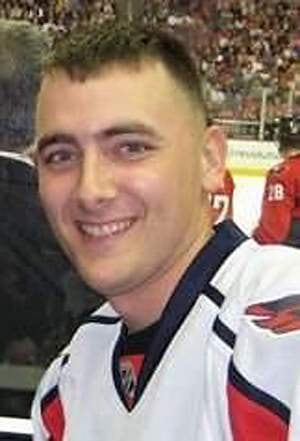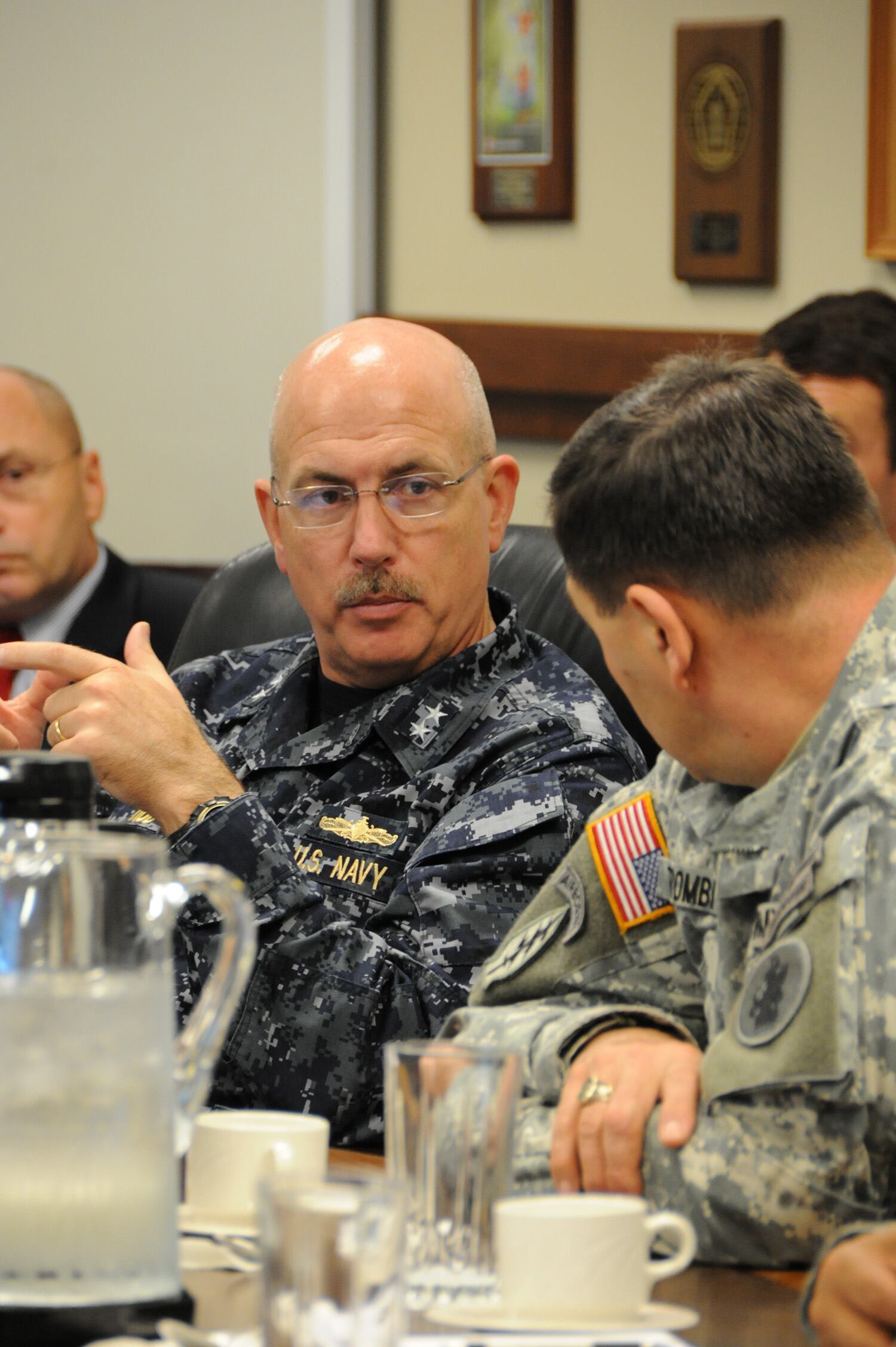Marine Corps Gen. John Kelly, one of the U.S. military's longest serving commanders and the most senior officer since 9/11 to lose a child in combat, will retire later this year.
The White House intends to nominate Navy Vice Adm. Kurt Tidd to replace Kelly as head of U.S. Southern Command in Miami, a senior Defense Department official confirmed for Military Times. Tidd's nomination and Kelly's expected retirement were first reported by the Miami Herald.
Kelly's military career has spanned more than 40 years. It included high-profile assignments during the Iraq war and later, when operations intensified in Afghanistan, as the senior military adviser to then-Defense Secretary Robert Gates. And since the loss of his son, a Marine like his dad, the general has sought to comfort and reassure others who've also lost buddies and loved ones, at the same time speaking out publicly to ensure today's combat veterans are held in the same high regard as those who fought in America's previous wars.
Kelly was an enlisted infantry Marine during the Vietnam War, attaining the rank of sergeant before leaving active duty in 1972 to pursue a college degree. A Boston native, Kelly was commissioned in 1976, after graduating from the University of Massachusetts, and held a number of command and staff assignments in the years since.
Notably, as a one- and two-star general, Kelly spent about three years leading combat troops in Iraq. He was there in 2008, overseeing thousands of coalition forces in the volatile Anbar province, when the U.S. transferred security oversight for the region to the fledgling Iraqi military.
It was a defining moment in the war and what had become known as the Awakening movement, which simultaneously brought a reduction in the sectarian bloodshed that had gripped Iraq since the takedown of Saddam Hussein and the tenuous prospect of greater stability as Sunni militias allied with forces backed by the Shiite-led government to beat back al Qaida's growing influence in the country.
"All we can hope to do is hold what we've achieved against the terrorists," Kelly said at the time, according to a report by the Los Angeles Times. "There are two things that are desperately needed that security forces cannot provide here: trust and friendship amongst all of you and between the province and the rest of Iraq. I pray God you can achieve this. If you will fail ... then the agony we will have endured together will have been for nothing."
In this role, Kelly was a central figure in engineering what was then hailed as one of the war's key successes. In others, he witnessed first-hand some of its greatest challenges and the personal sacrifice being made by U.S. troops in a war so frustratingly complex that today the prospect of peace in Iraq — where the Islamic State group now controls cities and villages where scores of Americans were killed and wounded — seems impossible.
In April 2004, for instance, Kelly was with a group of Marines who fought their way out of a hellish ambush not far from an American outpost in Mahmudiyah. Pfc. Chance Phelps was killed during the battle. HBO later made a film, "Taking Chance," based on a Marine officer's moving account of escorting the fallen Marine's casket from the U.S. military's mortuary in Delaware to Phelps' hometown in Wyoming.
Days later, Kelly wrote the officer, Lt. Col. Mike Strobl, to say "thanks for taking care of our Marine," and to share the story of Phelps' final moments alive — he died in a gun turret, heroically returning enemy fire — and what the young man had meant to others in his unit. "Your charge started this return home with the same kind of reverence and honor you describe in your trip report, only in a very, very different way," Kelly's letter to Strobl reads. "When we rushed into the combat base in Mahmudiyah it wasn't for him, we knew he was already with God, but for the wounded we had aboard. The entire camp knew he was with us, however, and they all stood tall and were proud to simply be in the same sh-- hole with him and doing what they joined to do."

First Lt. Robert Kelly
Photo Credit: File
Kelly's two sons, John and Robert, followed their father into the Marine Corps. Robert, 29, a prior-enlisted lieutenant, was killed by an enemy explosive in Sangin, Afghanistan, in November 2010. At the time, the general was serving as the three-star head of Marine Forces Reserve and Marine Forces North. News of his son's death was delivered by the general's best friend and fellow Bostonian, Gen. Joe Dunford, now chairman of the Joint Chiefs of Staff.
The loss was devastating for the Kelly family. And for the general, his status as a Gold Star parent, coupled with own gritty combat experience, has endeared him to rank-and-file troops, particularly infantry Marines. They view him not as an imposing four-star commander, but as one of them: a brawler, a man who has endured the very worst of war, and a general officer who has eschewed the political correctness often exhibited by individuals who attain such rank.
In the years since Robert Kelly's death, his father has made numerous speeches about the wars in Afghanistan and Iraq, and the caliber of those who have fought them. He has predicted the U.S. will remain engaged in conflict for decades. In 2013, while addressing a group of Marines during the dedication of an Afghan war memorial in sSouthern California, the general told those gathered that sustained conflict "may be an inconvenience for some, but I think it is reality."
"It is not in our power to end it, but simply to fight it," Kelly said, "until our murderous enemy, who hates us with a visceral disgust for everything we stand for, either gives up or we kill him. He's as dangerous as any opponent we've ever faced. He is more complex than anyone we have ever fought. He fights by no accepted rules of conflict and for goals no rational or decent human being, regardless of religion or culture, could ever understand. ... And at the end of the day, I don't give a good God damn goddamn why he hates us. I don't have to worry about that. If he wants to go to hell, I know an awful lot of Marines and sailors who know how to do that."
These speeches, often circulated within the officer and enlisted ranks and among veterans and retirees, demonstrate, on the one hand, Kelly's heartfelt admiration for the "1 percent" of young men and women willing to risk their lives in defense of America and its virtues. On the other, they show his biting disdain for any suggestion that today's all-volunteer force somehow lacks the fortitude possessed by those who came before them.
"I can’t count the number of times that I saw them in firefights, in Fallujah and Ramadi and other places, and I would just stand there in wonderment, thinking to myself: ‘There’s absolutely no reason on this eEarth why any human being would do what they’re doing,’ " Kelly told Marine Corps Times last year, just days before he was to deliver a Memorial Day address in Miami focused on the same theme. "Every human being naturally would want to protect themselves, crawl in a hole, get down. And they don’t.
"That's how Iwo Jima was taken. Guadalcanal. The Chosin Reservoir. If the Marines today are doing exactly the same thing their dads did in Vietnam, and their granddads did in Korea and World War II, then how in the hell can we say that they're not as good?"

Vice Adm. Kurt Tidd
Photo Credit: Eric R. Lucero/Army
Since taking over at Southern Command in 2012, Kelly and his team have been focused on combating the illegal drug trade throughout South America, Central America and the Caribbean, employing small groups of U.S. troops to train and assist foreign militaries. He's been outspoken about stemming the flow into the U.S. of migrants fleeing violence in that part of the world, fallout from what he's called Americans' insatiable demand for narcotics.
Kelly also has overseen operations at the controversial military detention facility in Guantanamo Bay, Cuba.
His likely successor, Tidd, currently serves as the Joint Chiefs' representative to Secretary of State John Kerry. Tidd is intimately familiar with the region and the U.S. mission there, having commanded the Navy force that resides within SOUTHCOM.
He was commissioned in 1978 upon graduating from the Naval Academy. And pending Senate confirmation, Tidd will pin on a fourth star and take over for Kelly at SOUTHCOM's Miami headquarters as soon as late November.





